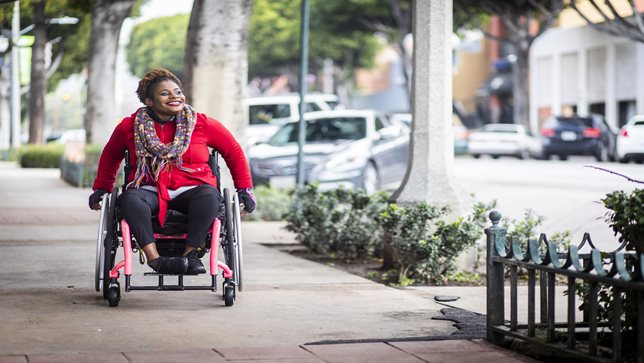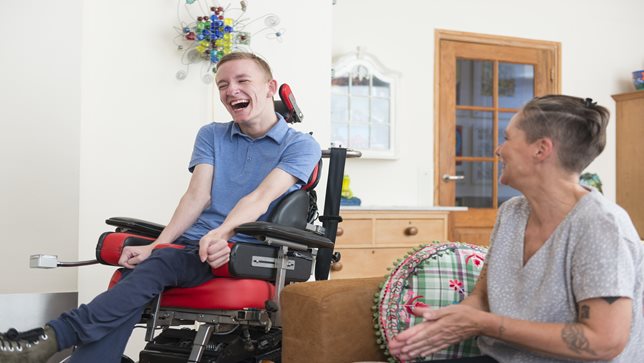People With Disabilities
People living with a physical, learning, or mental health disability, or vision or hearing loss are at higher risk of negative health effects from tobacco use. The good news is that people with disabilities can and do quit! And, people who sign up for Quitline help are more likely to quit for good than people who try to quit alone.
How to get started with quitting
 If you are living with a disability and want to quit smoking, the Quitline is here to help you.
The Quitline helps with the two parts that make quitting easier: talking to someone about quitting and using a quit medication.
Your specially-trained Coach will work with you over several weeks to make a quit plan, list people who will support you, like
your health care provider, friends and family, and talk about which medication you might use to quit.
If you are living with a disability and want to quit smoking, the Quitline is here to help you.
The Quitline helps with the two parts that make quitting easier: talking to someone about quitting and using a quit medication.
Your specially-trained Coach will work with you over several weeks to make a quit plan, list people who will support you, like
your health care provider, friends and family, and talk about which medication you might use to quit.
The Quitline is free to everyone who signs up. Quitline Coaches offer advice, support and referrals to help you quit. They help you find out what makes quitting so hard and help you choose the best steps for your quit plan. You may also be able to get free nicotine patches, gum, or lozenges at no cost.
When you quit smoking, you will have a healthier life and the benefits start right away. Some people worry about gaining weight when they quit. It is important to watch your portion sizes and choose healthy snacks. Food tastes better when you quit! Physical activity is also important when quitting. Find an activity you like and make sure you do it for at least 30 minutes each day. When you quit smoking it’s much easier to catch your breath and activity becomes easier.
Friends, stress and nicotine
Most of us enjoy having friends to hang out with and be social. Sometimes your friends, or people who support you in your daily life, smoke because they are feeling stressed. Seeing others smoke to deal with stress might seem like a good idea but nicotine addiction can make stress levels worse.
 Quitting smoking is one of the best ways to lower your feelings of stress and makes it easier to manage other health conditions.
You may not always have control over your where you are or who you are with. When you decide to quit, make a plan for how you
can avoid being around smoke or around people who do smoke until your urge to smoke goes away. Ask people who smoke to not smoke
when they are around you and support your decision to quit.
Quitting smoking is one of the best ways to lower your feelings of stress and makes it easier to manage other health conditions.
You may not always have control over your where you are or who you are with. When you decide to quit, make a plan for how you
can avoid being around smoke or around people who do smoke until your urge to smoke goes away. Ask people who smoke to not smoke
when they are around you and support your decision to quit.
Why is quitting important?
 Smoking is the number one cause of health problems and early death for anyone who smokes cigarettes. People with a disability who smoke are more likely to have a health problem related to smoking, such as asthma, COPD, heart disease, cancer, and diabetes. When you quit smoking, you will enjoy the many health benefits such as:
Smoking is the number one cause of health problems and early death for anyone who smokes cigarettes. People with a disability who smoke are more likely to have a health problem related to smoking, such as asthma, COPD, heart disease, cancer, and diabetes. When you quit smoking, you will enjoy the many health benefits such as:- Easier to breath and fewer asthma attacks
- Better mental health and quality of life
- Better control of other medical conditions
- Keep your hearing and vision for longer
- Fewer infections and faster healing times
- Better health for family, friends, and pets
Quitting may take a few tries and each time you will get better at it. The Quitline can help you make a quit plan that works for you. People who use our program have a better chance of quitting for good compared to doing it alone. Sign up today to set your own goals for being the healthiest version of you.

